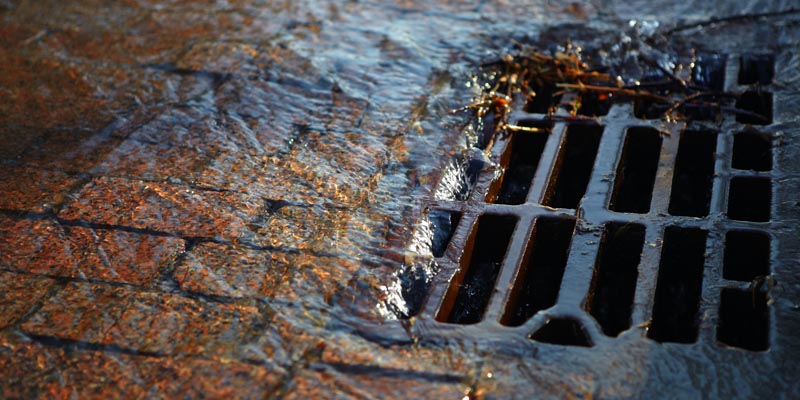Key Points: Learn what stormwater management is and your obligations as a business owner with regard to environmental compliance.
What is Stormwater
Stormwater is essentially all water that falls from the sky. This is mostly in the form of precipitation, but can also be the result of melting ice (e.g. hail) or snow.
After precipitation stormwater will either:
- Remain on the surface until evaporation occurs
- Soak into the soil and replenish underground water supplies
- Enter the stormwater network (drainage) as stormwater runoff – where it is eventually discharged into local waterways or the ocean.
Stormwater Runoff and Pollution
Stormwater runoff will often carry with it contaminants it has collected from the ground or hard surfaces such as car parks, wash bays, and loading bays that can cause pollution in our local waterways and impact local flora and fauna.
These may include fertilisers, chemicals and organic material from the soil and hydrocarbons from hard surfaces.
For example, stormwater runoff from wash bays, roads, driveways and carparks may carry with it heavy metals, oil residue, silt and litter along with organic material.
As stormwater is not treated before being discharged, unlike the sewer network, these contaminants have the potential to pollute local waterways.
Environmental Compliance
Due to the risk of pollution occurring as a result of contaminants being transported in stormwater runoff, business owners must be aware of their environmental compliance requirements and ensure preventative measures are in place to reduce the impact of stormwater runoff.
Heavy fines, and/or prosecution can occur if a business is found responsible (or negligent) with regard to polluting local waterways.
Business that fail to take precautions to prevent incidences of pollution may come under scrutiny from local and state government along with the EPA and the public in general.
Business owners can face heavy fines and/or prosecution if deemed responsible for causing pollution as a result of not taking adequate precautions to reduce the risk of pollution occurring.
Harvesting Stormwater
Stormwater is also a valuable resource for many businesses or public areas such as parks and/or golf courses that require water for irrigation. In this case, stormwater is harvested and will require pre-screening and in some cases treatment with sterilisation before being reused, depending on the amount of exposure to people and the environment.
Stormwater Management
There are a range of options available for businesses of all sizes with regard to stormwater management. These include:
- Products that block stormwater drains
e.g. weighted drain covers
* This type of product is also effective in the event of a liquid spill e.g. in the case of a chemical spill inside a factory where it would be hazardous for the materials to enter the drainage system. - Products that filter stormwater and reduce contaminants
e.g. gross pollutant collection units and stormwater screens - Automated systems that divert stormwater runoff to storage
e.g. water tanks and/or treatment devices such as oil water separators that separate hydrocarbons from water, allowing wastewater to then enter the stormwater network while contaminants are diverted to the sewer - Systems that detect rain events and divert the initial first flush runoff to the sewer
- Systems that incorporate all of the above
Summary
Stormwater runoff will often carry with it contaminants that have the potential to pollute local waterways. Due to the risk of pollution occurring business owners must be aware of their environmental compliance requirements along with ensuring preventative measures are in place.


